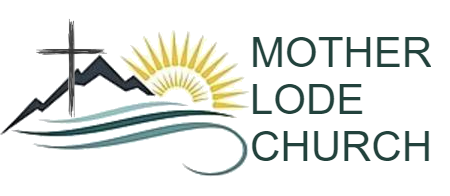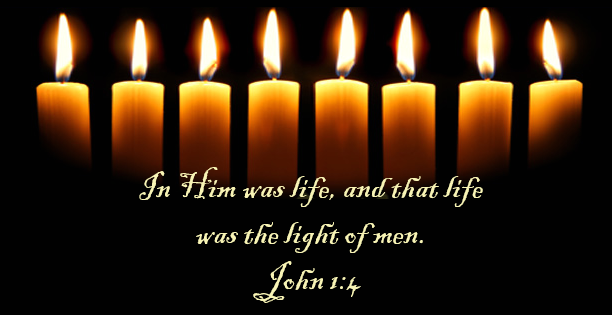Yesterday we went to an event called “Chanukah Wonderland” sponsored by Chabad Jewish Community Center of Folsom and billed as “The largest Chanukah Event in the Sacramento Region.”
Our three-year-old granddaughter got her faced painted, made a “dreidel” bracelet, and put together an electric menorah. There was a kids’ contest for the best homemade menorah, including one made from tiny vodka bottles!
This Tuesday, December 12, 2017, Jews all over the world will be celebrating Hanukkah—the Feast of Dedication. The question is: Can Jesus be found anywhere in Hanukkah? The answer may surprise you.
Jesus’ Footprints Are All over Hanukkah!
In John 10, we see Jesus as He made His way to the Jerusalem Temple to celebrate Hanukkah—The feast of Dedication. Hanukkah is not a festival that God designed for His people, but one that His people started in response to what God had done for them.
John 10:22-23: “At that time the Feast of Dedication (Hanukkah) took place at Jerusalem. It was winter, and Jesus was walking in the temple, in the colonnade of Solomon. So, the Jews gathered around him and said to him, ‘How long will you keep us in suspense? If you are the Messiah, tell us plainly.’”
Jesus is connected with Hanukkah, so it’s incumbent upon us to learn the story of the Feast of Dedication—Hanukkah.
Antiochus IV Epiphanes—“God Manifested”
We find ourselves going back to the 400 years between the OT and NT. Alexander the Great died early at age 33, and his kingdom was divided into four empires. Israel came under the Seleucid empire headquartered in Antioch, Syria. The most difficult period for Israel came in 167 BC when the Seleucid ruler, Antiochus IV, came to power. He called himself Antiochus Epiphanes—meaning “God manifested.”
Antiochus followed Alexander’s example of making a one-empire people through a one-empire culture. Accordingly, Antiochus Epiphanes issued the following orders for all Jews. Under penalty of death, the Jews were forbidden:
- To circumcise newborn boys
- To observe religious festivals
- To keep the Sabbath
- To offer daily sacrifices
- To read or own a copy of the Torah
On top of all that, Jewish people in every city were required to:
- Erect altars to Zeus the chief god of the Greeks
- To sacrifice pigs on those altars
Judah Maccabee—Jewish Resistance Leader
While all this was going on, a Jewish resistance leader arose named Judah Maccabee. His support came mostly from the Orthodox Jews who took God’s Law/Torah seriously. They may have called themselves Chasidim, “the holy ones.” The Chasidim correctly believed in life after death, in heaven and hell, in the resurrection of the body, and in angels and spirits. The descendants of this movement became the Pharisees of Jesus’ day.
The other great division in Israel called themselves Tz’dukim, “the righteous ones.” They believed in the Law of Moses, accepted the prophets, but they did not believe in life after death, a resurrection, and angels or spirits. They believed this life was heaven or hell depending on how one lived it.
Hellenized Jews Appeal to King Antiochus Epiphanes
The Re-Consecration of the Temple
In great joy, Judah and his army entered Jerusalem, defeated the powerful Syrian garrison fortress called the Citadel, and consecrated the Temple.
- They found weeds and shrubs growing in the courtyards
- The priests’ quarters destroyed
- The altar was defiled by an idol to Zeus and the remains of sacrificed pigs
- And the entire Temple area was profaned
Hanukkah, the Feast of Dedication
An eight-day feast of dedication or re-consecration to the God of Abraham, Isaac, and Jacob was held on the 25th day of the ninth month of Kislev in 164 BC. Today this celebration is called Hanukkah or the Feast of Dedication.
Jesus and Hanukkah
We now find ourselves almost 200 years later in the Temple with Jesus, celebrating Hanukkah—the Feast of Dedication. The context is very important, so remember what the Feast Celebrated.
The Festival of Dedication memorialized the defeat of one who falsely claimed to be god. And it also celebrated the re-establishment of sacrifices for the forgiveness of sins. That was the original Hanukkah. So now we find Jesus in the Temple during Hanukkah, a very patriotic day, when once again Israel is controlled by an outside hostile power. With all that in mind, the people ask Jesus a question:
“So, the Jews gathered around him and said to him, ‘How long will you keep us in suspense? If you are the Messiah, tell us plainly’” (John 10:24).
The people wanted another Judah Maccabee—another deliverer!
“Jesus answered them, ‘I told you, and you do not believe. The works that I do in my Father’s name bear witness about me’” (John 10:25).
Jesus then continued his conversation until its climax:
Jesus Just Put God and the Gospel Right Back in the Middle of Hanukkah!
Those who believed, understood what it meant for Jesus to be the Messiah. Those who did not, boiled over in anger: “Here’s a man claiming to be God just like Antiochus Epiphanes. He should be dead just like Epiphanes.” They picked up rocks to stone Jesus (John 10:31).
They accused Jesus of the same crime of Antiochus IV Epiphanes:
Here Is Jesus, Claiming He is God—How Is This Related to Hanukkah?
Yes, Antiochus Epiphanes was nothing but a fraud, but right here before them was God in the flesh—Jesus the Messiah. That was what they were meant to learn. Jesus was the real deal. Sadly, most believed that Jesus was a phony just like Antiochus Epiphanes. They missed the teaching moment of Hanukkah that Jesus used to point to His Divinity. But Jesus still had more to say. He takes the accusations against Him of blasphemy during Hanukkah, and asks the crowd a question:
“Do you say of him whom the Father consecrated and sent into the world, ‘You are blaspheming,’ because I said, ‘I am the Son of God’?” (John 10:36).
Get it? Right in the middle of Hanukkah which is dedicated to remembering the Most Holy Place being re-consecrated, Jesus says He is consecrated and sanctified by the Father, just like the Most Holy Place in the Temple!
Suddenly, It Is All Clear
God the Father has already consecrated Jesus to be THE SACRIFICE. He fulfills what Hanukkah was meant to foreshadow. Hanukkah remembers the altars rebuilt and rededicated to be set apart to bring God’s people God’s forgiveness. But that forgiveness would soon come in the sacrifice of One whom God the Father set apart and consecrated for that purpose. Forgiveness would come by Jesus Christ and His death to pay for our sins.
Jesus’ final word to the people during Hanukkah was a direct challenge: “If I am not doing the works of my Father, then do not believe me; but if I do them, even though you do not believe me, believe the works, that you may know and understand that the Father is in me and I am in the Father” (John 10:37-38).
The festival of Hanukkah points to the Divinity and final sin-sacrifice of Jesus.
Looking forward to celebrating Advent with you this Sunday as we look at The Fourth Song of Christmas: Simeon’s Song recorded in Luke 2:21-35. Bring a friend!
Shalom,
Pastor Steven

